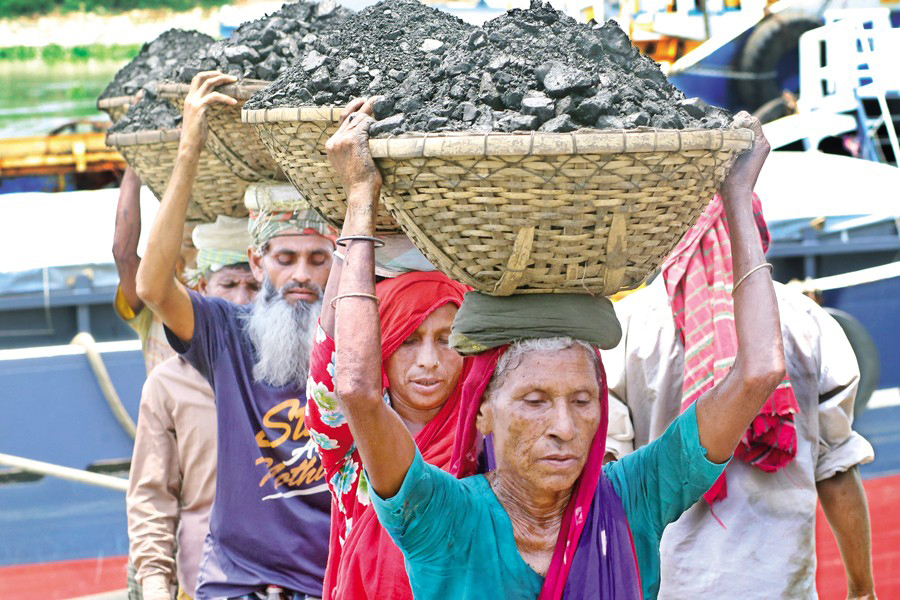
Published :
Updated :

May Day, also known as International Workers' Day, is a day of recognition and solidarity with the global labour movement. Celebrated annually on May 1st, it honours the enduring struggles and vital contributions of working people worldwide. It stands as a powerful call to continue the fight against exploitation and injustice, underscoring the importance of safeguarding workers' rights and ensuring their welfare. May Day also highlights the invaluable role of workers in driving economic development, societal progress, and nation-building. In observing the day, workers and different organisations hold rallies, seminars and various events, reaffirming their commitment to advancing the ideals of justice, dignity, and fair wages for all labourers.
This year, Bangladesh marks May Day at a pivotal moment. The Labour Reform Commission (LRC) has submitted its final report to the government, outlining a series of crucial recommendations. If accepted by political parties and effectively implemented, these reforms could significantly advance the rights and wellbeing of the country's 60 million working people. The LRC's recommendations span a wide range of issues, including the announcement of a national minimum wage to ensure a dignified standard of living for workers and their families, the reevaluation of salary structures every three years, compensation for delayed salary disbursements, implementation of annual wage increments aligned with inflation, and the creation of an emergency fund for workers in export-oriented industries. Other key proposals of the commission include easing conditions for forming trade unions, prohibiting the outsourcing of recruitment for permanent positions, providing six months of maternity leave for female workers, and establishing a permanent labour commission to oversee and enforce workers' rights.
The commission's report states that the national minimum wage will serve as the baseline for determining the wages of all workers, whether employed in institutional or non-institutional settings, by government or private entities, or even by foreign organisations and individuals. Meanwhile, sector-specific minimum wages would continue to exist, but they must not fall below the national minimum threshold. However, the real challenge would be its enforcement. In a country where a staggering 87.2 per cent of the workforce is employed in the informal sector, enforcement of a national minimum wage would be a monumental task. Over the years, the government couldn't even effectively enforce the minimum wage in the ready-made garment sector. And yet, the positive aspect of having a national minimum wage, as many believe, it would provide workers with a legal basis to demand fair remuneration. Moreover, if fair minimum wages are set through dialogue and consensus among all stakeholders, industrial unrests could be reduced to a large extent.
The Labour Reform Commission's recommendations regarding trade unions are equally significant. For years, both domestic and international stakeholders have raised concerns about the lack of effective worker representation. In many factories, this gap has often led to tensions between workers and employers, undermining a healthy industrial environment. The formation of trade unions is not only a fundamental right of workers but also a stabilising factor for smooth operation of industries. However, in Bangladesh, union activities are often perceived as conspiracies against industries and their owners. Yet the blame does not rest solely with employers. While some large unions exist, many have been co-opted to serve the interests of political parties rather than genuinely representing workers. Some labour leaders tend to exploit unions for personal gain, using union power to pressure employers rather than promote genuine dialogue to materialize workers' interest.
In absence of genuine representation, labour movements often culminate into factory vandalism and property damage, leading to unrest that ultimately harm workers' livelihoods. Trade unions are expected to address these issues and provide structured, constructive representation.
Currently, for a trade union to be registered, factories employing fewer than 3,000 workers require the signatures of 20 per cent of employees, while those with more than 3,000 workers require signatures from 15 per cent. The commission has proposed shifting from this percentage-based requirement to a fixed minimum number of workers, thereby simplifying the registration process. It also recommends the formation of a tripartite committee to draft detailed guidelines to further strengthen the trade union system.
To eliminate unhealthy practices in the name of unionism and restore trust in trade union activities, the operation of trade unions must be streamlined. A well-functioning trade union system-founded on accountability, transparency, and fairness-can protect workers' rights while also ensuring stability, sustainability, and growth in the industrial sector.
The Commission has also recommended significant reforms to existing labour laws-or the enactment of new, integrated labour legislation-to bring workers from all sectors, industries, and organisations under legal protection. To support this, it proposes the establishment of a National Labour Force Registration System and Information Repository, along with an increase in the number of labour courts to ensure more efficient dispute resolution. Additionally, it recommends that every worker receive an employment letter, identity card, or certificate, and proposes the introduction of a worker-friendly pension scheme under the National Pension Scheme, along with card-based ration distribution for workers in industrial and rural areas. These reforms address long-standing demands of workers across all sectors, and the Commission has rightly acknowledged their urgency.
The government is expected to share the Commission's recommendations with political parties to build consensus around the proposals. While there seems to be little justification for any party to oppose reforms aimed at ensuring workers' rights and protections, the real question is whether political actors will prioritise the interests of workers over those of factory owners.
aktuhin.fexpress@gmail.com


 For all latest news, follow The Financial Express Google News channel.
For all latest news, follow The Financial Express Google News channel.